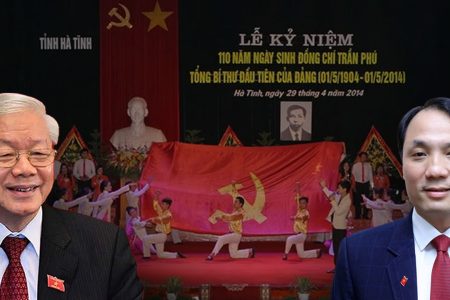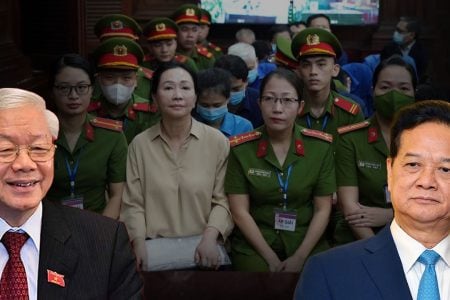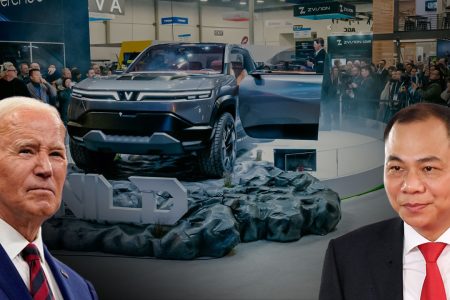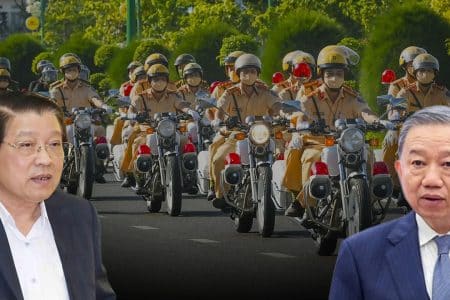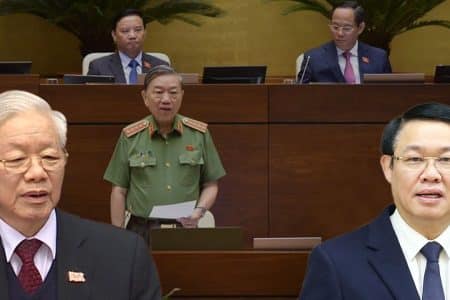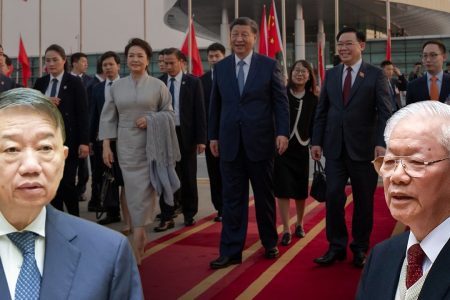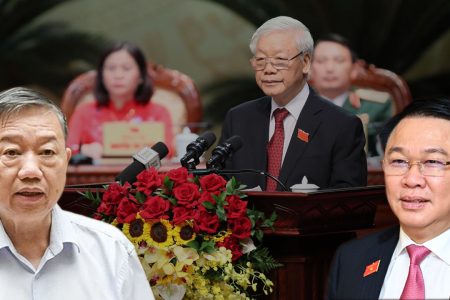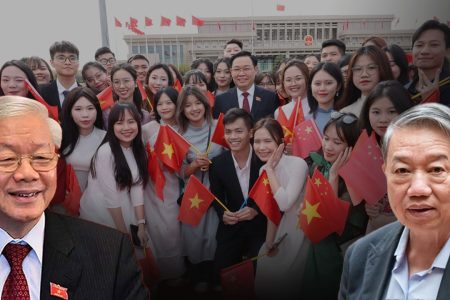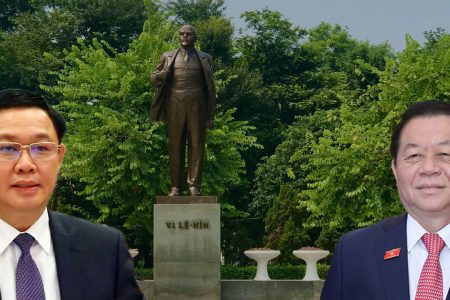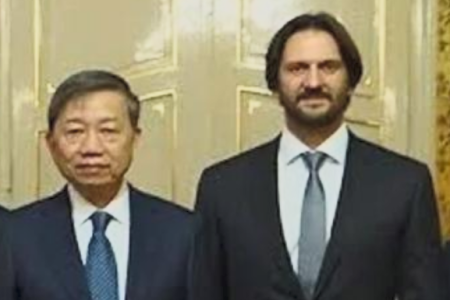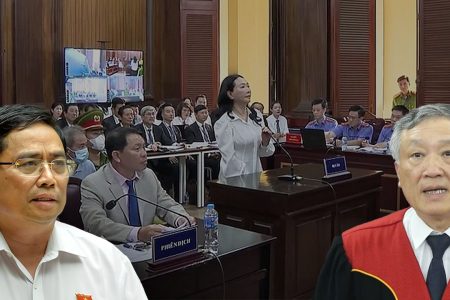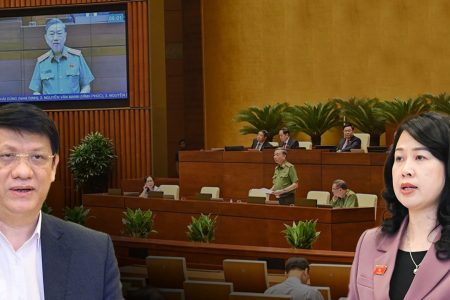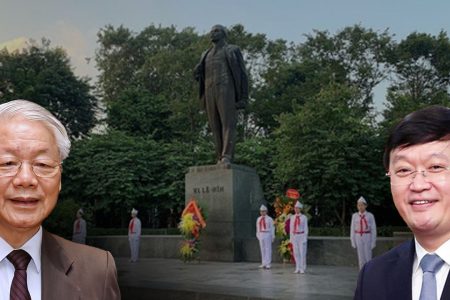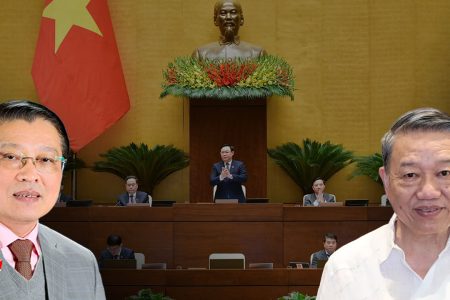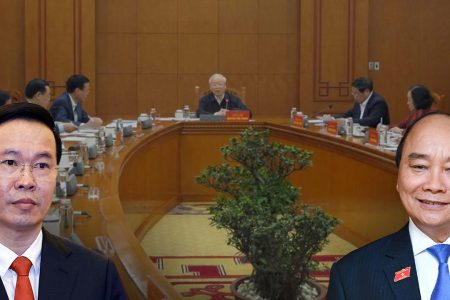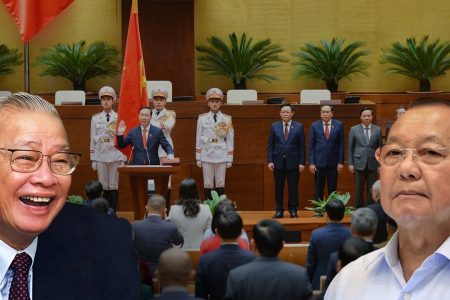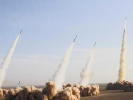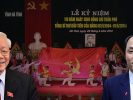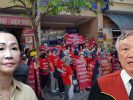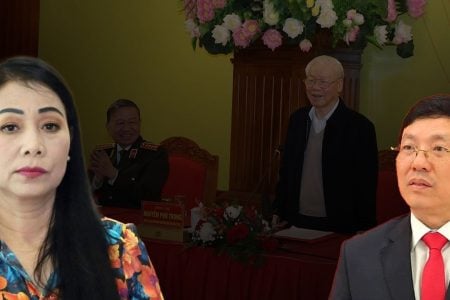
Is Vietnam “turning the wheel” in its stance on Russia’s war in Ukraine, after announcing humanitarian aid to Kiev? Is the careful preparation for Prime Minister Pham Minh Chinh’s trip to attend the US-ASEAN Summit and visit the US next week a sign of future changes?
The opening speech of the 5th Plenum of the Communist Party of Vietnam (CPV)’s Central Committee, presented by General Secretary Nguyen Phu Trong to its 200 members, barely mentioned anything about the regional and international situation. Russia’s invasion of Ukraine is shaking the world and has the potential to change the world order in both the region and the world, but for Vietnam until before the 5th Plenum, it seems that the war took place in Africa or on Mars. However, with the Japanese Prime Minister’s official visit to Vietnam for two days, April 30 and May 1, Vietnam initially showed some adjustments. The Ukraine war was one of the central themes of the visit. The leaders of the two governments of Japan and Vietnam jointly emphasized the importance of an “immediate ceasefire” in Ukraine and called for “no use of weapons of mass destruction.” In particular, on the occasion of the visit of the Japanese PM, Vietnam announced humanitarian assistance of $500,000 to Ukraine. This humanitarian aid to Ukraine will be conducted through international humanitarian organizations.
The above information was announced by PM Chinh to the press after a meeting with Japanese government leader Fumio Kishida in Hanoi on May 1. In addition, “Vietnam has expressed a comprehensive view on humanitarian issues in Ukraine, ready to make active contributions to humanitarian activities, diplomatic processes, dialogue, and negotiations,” Zing News quoted Zing News as saying. To get an idea of the scale, RFA compares this amount to the value of medical equipment that Hanoi sent to Beijing in February 2020 to deal with the COVID-19 epidemic. Meanwhile, the Red Cross Society of China announced to provide humanitarian assistance worth $2.37 million in two times to Ukraine. Taiwan has donated $20 million to refugees, mostly from the public, and it plans to disburse another $12 million.
However, there are opinions that Vietnam deliberately downplays the importance of PM Kishida’s visit to Hanoi. The day before the Japanese PM arrived in Vietnam, on April 29, the Ministry of Public Security announced that there had been a decision to probe and an arrest warrant for the accused with a businesswoman with very close ties to the world in Japan, Ms. Nguyen Thi. Thanh Nhan, chairwoman and general director of Progressive International Joint Stock Company (AIC). Nhan’s entire behavior in Vietnam has been made clear, even published on social networks a year and a half ago. So why not delay the decision to disband the “AIC Group Empire” for a few more days according to common courtesy? This can only be explained: The “roaming” on the top floor is entering a dramatic episode, to the point that current PM Chinh, who was once chairman of the Vietnam-Japan Friendship Parliamentary Group, also could not prevent the General Secretary to delay the “launch of the palm.” National – national interests at this time are not equal to personal interests, group interests at the decisive moment!
Because of differing opinions within the leadership of the Communist Party of Vietnam, some concerns arise when PM Chinh will lead a high-ranking Vietnamese delegation to Washington next week to participate in the US-ASEAN Special Summit.” The immediate consequences of Russia’s invasion of Ukraine will dominate bilateral consultations with their American counterparts. Since Russia waged a war of aggression against Ukraine, Vietnam’s diplomatic moves have gone against the majority of ASEAN members. So far, Vietnam has abstained and opposed all UN votes on the issue and is unlikely to support sanctions targeting Moscow. However, Hanoi still allowed state media coverage of the war (even while avoiding the word “aggression“), showing considerable sympathy for Ukraine’s cause to the larger Vietnamese public.

According to David Brown, a retired US diplomat, the presence of the Vietnamese PM in Washington could spark negative comments. Harsh interlocutors may question, why did the US not sanction Hanoi’s purchase of Russian weapons systems and criticize Hanoi’s failure to participate in a vote condemning Putin’s war in the United Nations. PM Chinh and his colleagues must speak carefully in Washington. There, attention remains focused on the crisis in Ukraine. It would be wise for Mr. Chinh to show genuine sympathy for Ukraine and express his disappointment with Russia, a longtime trusted friend of the Hanoi regime. Chinh should also affirm frankly and unequivocally that Vietnam has relied on weapons systems purchased from Moscow to protect its interests against belligerent elements in Beijing.
However, there are practical limits to the extent to which Vietnam can alienate Russia without compromising its own security. More than 80% of Vietnam’s military equipment is produced by the Soviet Union or Russia. Vietnam faces both maritime coercion and a land border with China, which it sees as a long-term threat. Vietnam repelled a Chinese invasion across the border in 1979 and sustained a series of skirmishes with China over the next decade, both along the border and in the Truong Sa (Spratlys). Hanoi faces frequent challenges in the gray zone from China’s navy, coast guard, and militia that could escalate at any time and must defend nearly 50 isolated outposts in the Truong Sa against potential invasion or blockade. Invading Ukraine makes Russia a strategic liability for Vietnam, and Hanoi knows it. As a result, Vietnam is accelerating the diversification of its military procurement, as it has done since Russia’s annexation of Crimea in 2014. This will be a gradual and gradual process. a process that will contribute to the deepening of the Vietnam-US security relationship. Next week, Chinh must convince Washington to accept that Hanoi cannot risk its security by publicly condemning Moscow.
On the occasion of the event of April 30, 1975, speaking in the Tien Phong newspaper, Senior Lieutenant General Nguyen Chi Vinh recalled the history of the war that took place from 1954 to 1975: “Vietnam’s victory brought as for our nation, as well as for the world, a lesson that: With the war of aggression, with a desire for foreign annexation, there is no other way but to use the violence of justice to repel invaders’ violence, defeating the unjust war. History has shown that there is no war of aggression where the invaded country can maintain its independence, territorial integrity and peace by agreement and concessions.” When General Vinh emphasized, “with an invading army… there is no other way but to use the violence of justice to repel unjust violence“, then deep in his feelings, Vietnam should have been implicitly supported the Ukrainian army and people. Public opinion eagerly awaits the outcome of PM Chinh’s visit to the US to assess when Vietnam will condemn the Russian invasion, abandon its “neutral” stance in the Russia-Ukraine war, and will declare, Is it a war of aggression?
Thoibao.de (Translated)




